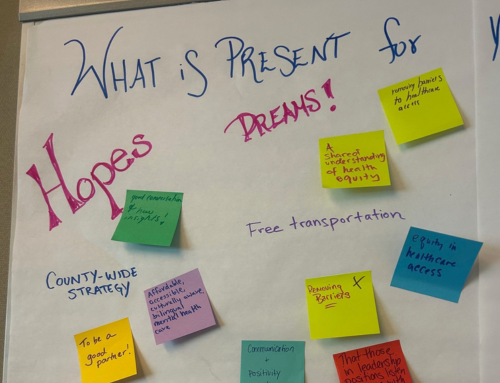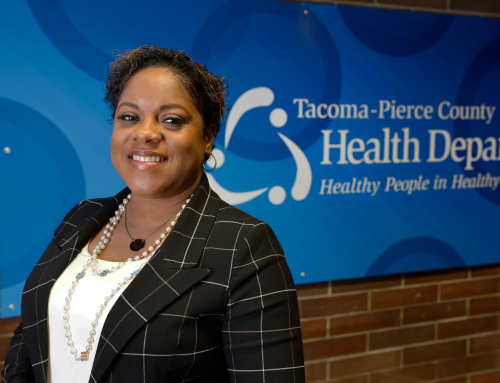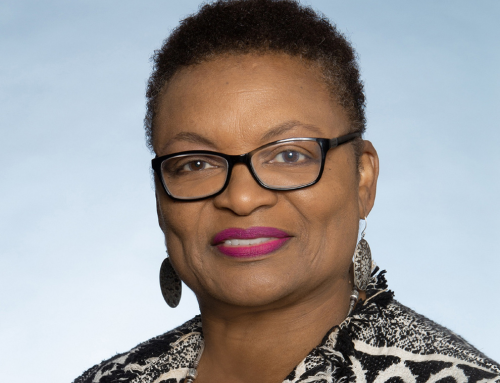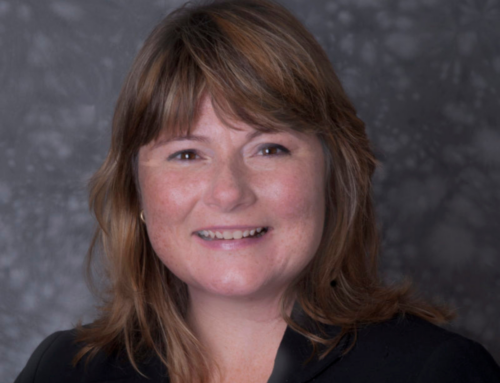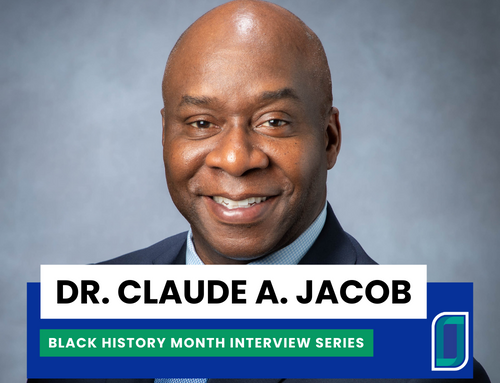The pandemic showed us the power of collaboration and partnership in responding to community needs. The Cerro Gordo County Department of Public Health (CG Public Health) has long valued partnerships to achieve their goals and serve their community. During the pandemic, the department maximized its partnership with Iowa State University to support volunteer coordination efforts for their COVID-19 mass vaccination clinics.
CG Public Health was lucky to have this partnership in place before the onset of the pandemic.
In 2017, CG Public Health formed a relationship with an outreach program at Iowa State University called Community Connections for Public Health (CCPH). Through an upper-division course, the group has fostered service-learning projects with undergraduate students in community and public health. The 2020 service-learning project was pivotal.
Alyse DeVries, Public Health Strategist at CG Public Health, manages the internship program for the department. She realized the need to manage interns more effectively and collaborated with Iowa State University to help her figure out how.
The CCPH group at Iowa State manages a platform called GivePulse that helps recruit and manage volunteers. Students were tasked with learning about the platform and exploring how it could be used to coordinate interns for the health department. Students would then be responsible for teaching the platform to health department staff.
The pandemic began just a few months after the project, and CG Public Health needed a surge of volunteers to provide administrative support, contact tracing, and vaccinations.
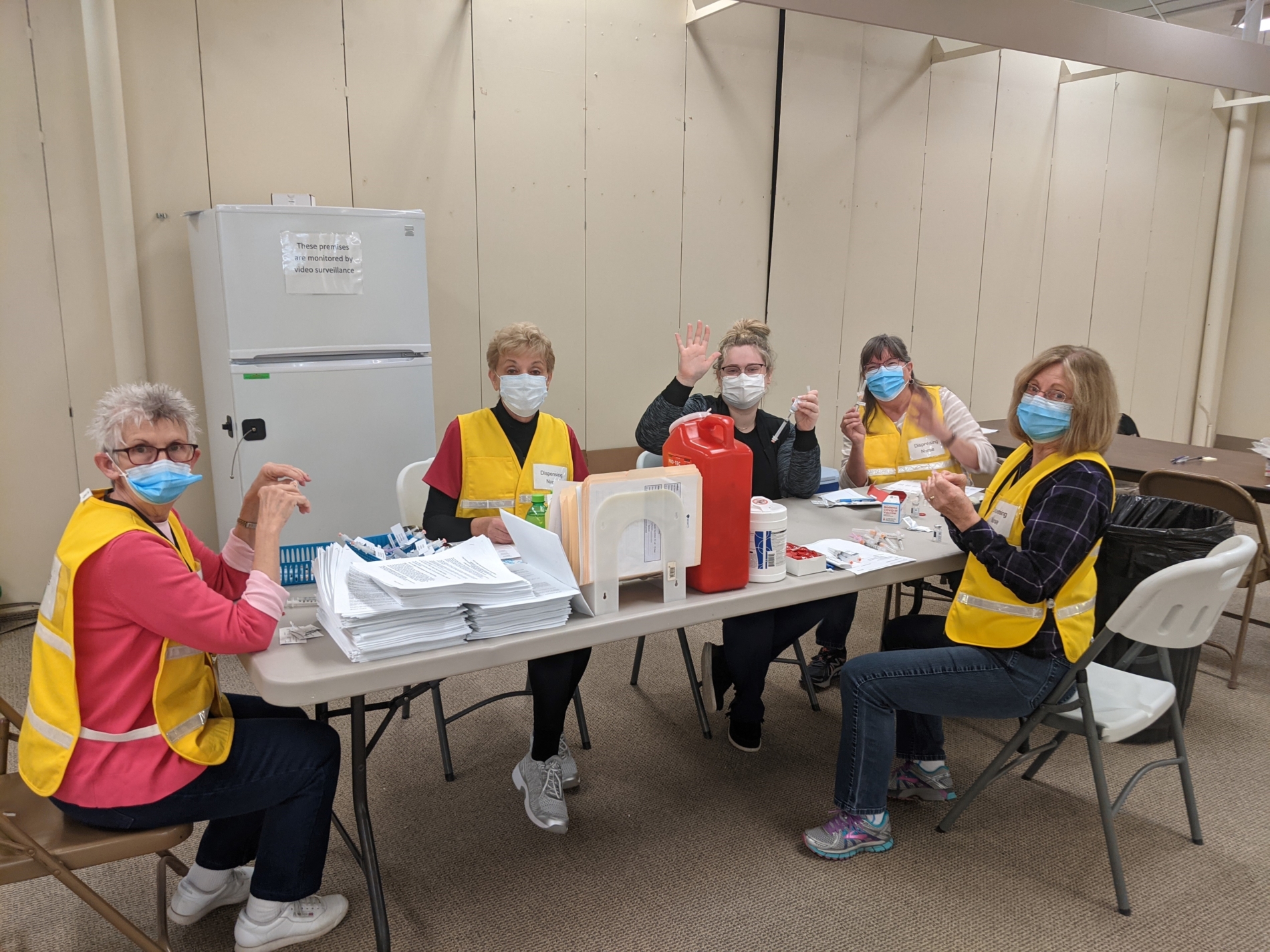
The department relied on GivePulse to do the heavy lifting by managing schedules, coordinating recruitment, and tracking hours for over 200 volunteers. And since Iowa State already had a license for the platform, CG Public Health could access the software and leverage in-house expertise.
The platform access and use of volunteers had an estimated cost savings of over $275,000 for the department. While the project began with a focus on interns, the systems and knowledge gained from this partnership helped the department’s overall COVID-19 response.
But the partnership proved helpful in many other ways.
“Academic partnerships open a huge scope of expertise access, knowledge, and skills,” said DeVries. “Our partnership [with Iowa State and other universities] has given us access to some awesome students.”
Internships help expand reach and put theory into practice.
CG Public Health interns participate in different areas of public health, even if they don’t have a public health background. These internships range from nursing to administrative to communication.
A recent communication intern developed a series of Tik Tok videos that gained over four million views.
Working with interns from diverse professional backgrounds and interests gives the department access to fresh minds and new ideas. Students can put theory into practice at the health department to improve community health. And they get paid.
“It’s important that we pay all our interns for equitable access to these opportunities. We make sure to build internship hours in our grant applications to support their time and work,” DeVries noted.
Developing academic partnerships can be a challenge, but it’s worth it.
The biggest challenge that DeVries faced was shifting staff culture to embrace interns. Many staff viewed working with students and interns as added work on top of their heavy workloads. Where would they find the time? DeVries showed them the possibilities.
“I hold meetings with divisions to figure out their priorities. For example, what would you want to do if funding was available?” DeVries noted. “I posed the question, ‘could this be kickstarted by an intern?’ This helps seed project ideas organically and identify where we could use some extra help.”
DeVries started a newsletter to spotlight interns and their projects to keep staff engaged. The newsletter highlights what students are working on and their deliverables. Now that staff recognizes the value of internships, student help is more appealing, and intern requests have boomed.
“It’s about being clear about the opportunities and helping staff understand the possibilities,” said DeVries.
Academic partnerships can help with the public health workforce.
Academic partnerships can open many opportunities for the public health workforce, both locally and in the larger public health field.
“The coolest thing about working in public health is that you get to work with people who are passionate about what they do,” DeVries expressed. “Matching students with their interests and showing them possibilities they may not have considered makes for a better experience for us all.”
And that experience paid off. Since formally becoming an Academic Health Department in 2019, almost 70% of on-site interns have been hired at the department. This helps get students excited about public health and keeps them involved in the health of their community.
DeVries hopes to continue to expand the academic health department program to include staff/faculty partnerships and teaching at the local community college, leading to a pipeline of students into public health fields.
“Academic partnerships open a huge scope of expertise access, knowledge, and skills,”
Alyse DeVries, CG Public Health
